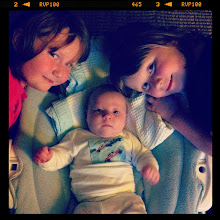
This week's reading...
Friend me if you Facebook: Generation Y and performative surveillance -
E.J. Westlake
Facebook - “Facebook develops technologies that facilitate the spread of information through social networks allowing people to share information online the same way they do in the real world. This tension between specificity and generality, and local and global, affects the ways in which communities of users perform their identities, both in cyberspace and in the material world. It reflects the changing social landscape of the information age”.
Facebook was developed by Mark Zuckerberg in 2004 as an online social network for Harvard students. It shifted to mainstream usage in 2006 and quickly became a social phenomenon. It differs from other social networking websites such as Facebook in its aim. MySpace has a focus on online creativity and is most commonly used for creative promotional purposes. Facebook is focused on social networking.
Contrary to popular belief, young people are not disengaged, but rather they are more connected than ever before. However this connection with society and the way in which young people build communities has experienced a shift into the virtual or online world. This connection is largely facilitated by online social networking tools such as Facebook, MySpace and Twitter. Westlake refers to this as “the performance of self online”.
Facebook requires non-linear reading strategies. The user must choose the path and order of the text they read driven by “desire and cognitive processing style”. The experience is highly-participatory with the user contributing in many ways to the process.
Facebook has created its own language and own subculture e.g. “Do you Facebook” and “Why don’t you friend me?”
Some sociologists are concerned at how this intense level of virtual interaction may affect the face-to-face interaction skills of the younger generations. Will it shape generations of digital natives, replacing traditional modes of interaction? Many refute this, arguing that those who socialise online do not substitute it for other forms of interaction and indeed they interact on multiple levels using multiple media. Younger generations are in actuality more comfortable than other generations in interacting in a number of ways, be it online or face-to-face.
Controversy surrounds Facebook following the introduction of a Newsfeed function which many viewed as overly intrusive, raising concerns about the use of Facebook for surveillance e.g. “Stalkerbook”.

No comments:
Post a Comment